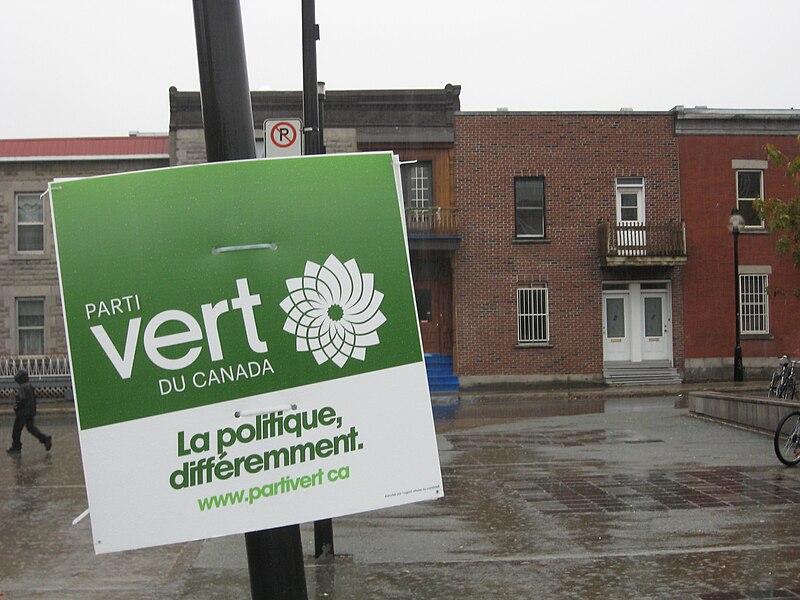 With less than a week to go before election day and polls tightening across British Columbia, I find myself in the all-too-common predicament of dreading the electoral options before me.
With less than a week to go before election day and polls tightening across British Columbia, I find myself in the all-too-common predicament of dreading the electoral options before me.
The Liberals, naturally, are out of the question. They have governed this province horrendously through 16 years of the wrong kind of class warfare, slashing education and social services, offering up more for wealthy donors than for regular people or the natural environment. True, former premier Gordon Campbell showed genuine concern for climate change for about 15 minutes back in 2008, but his successor Christy Clark froze BC’s paltry carbon tax at $30 per tonne and weakened her predecessor’s clean energy regulations in service of her pie-in-the-sky LNG dreams.
As for the NDP, the kindest thing one can say is that they are not the Liberals. Leader John Horgan, in an attempt to appeal to both the labour and the environmental wings of his party, is pledging to raise the carbon tax to the level required by the federal government, but to do so at a marginally faster pace than will the BC Liberals. The party favours some LNG projects and not others. It is strongly opposed to Kinder Morgan’s Trans Mountain pipeline expansion, while it straddles the fence on the Site C dam.
The NDP represents the province’s best shot at effecting a change in government, yet this does not in itself constitute sufficient reason to vote for them. To cast one’s ballot “strategically” lets mediocre parties off the hook for their mediocrities and sets the stage for a race-to-the-bottom-style proliferation of inadequate policy. Progressives must demand more from the NDP, insisting that our support be earned, not taken for granted.
Which brings us to the Greens, the party perennially on the verge of either breakthrough or irrelevance, never quite reaching either. Unsurprisingly, the Greens have by far the most environmentally sound platform — and probably the most progressive one too. They promise to raise the carbon tax to an eventual target of $70 per tonne — $20 above the federal requirement — and to expand it to cover some emissions not currently priced. Party leader Andrew Weaver has been a lone voice of reason in the Legislature opposed to LNG development, and he rejects the approval of any new fossil fuel infrastructure.
On the social front, the Green Party matches the NDP’s promise on raising corporate taxes, while surpassing them on personal income tax hikes for the wealthy. Income assistance rates would be higher under a Green government than under either other major party. Both the NDP and the Greens have some worthy, albeit incomplete, ideas on housing, and while NDP child care policy presents a good deal more detail, the Greens have one-upped them on affordability.
Boasting the largest increases to both spending and revenue, Greens distinguish themselves as the party of what is ominously referred to in right-wing circles as “big government.” While their rivals promise to keep budgets in the black, the Greens pledge only to balance the books on average over a four-year term, allowing deficits to occur during individual years.
Where the Greens start to falter is not so much in their platform as in their leader. Weaver is an accomplished climate scientist and former lead author on several IPCC reports. When he speaks, people rightly listen. But his stature suffered when, during his term as MLA, he bewilderingly voted for two Liberal government budgets.
Like many Green voters, I could not help but wonder what he was thinking. Was it a matter of deep-seated conviction on his part? Or of wanting to “do politics differently,” as he nebulously claimed in the moment? Did he simply wish to ingratiate himself to whoever happened to be in government? Add to this his strange infatuation with private power and his criticism of the NDP’s equity policy on candidate nominations, and it is not clear that Weaver is capable of walking his party’s progressive talk.
Furthermore, the stakes are particularly high in the current election, in which the Greens are polling unusually well for a third party, while the Liberals and NDP wage a closely fought battle for first place. If no party gets a majority in the Legislature, who would Weaver and his potential caucus-mates throw their support behind for premier?
For my part, I plan, with some reservation, to risk another vote for the Greens on May 9, premised on the possibly flawed assumption that an NDP-Green alignment makes more sense than a Liberal-Green one. Two budgets aside, Weaver has voted with the NDP far more often than he has with the Liberals, and he stated in 2013 that he would prefer an NDP to a Liberal government.
However, I understand that others, including many whose opinions I deeply respect, might make their calculations differently. Weaver is a bit of a gamble. Under the circumstances, I cannot blame anyone for casting a safe — albeit uninspiring — vote for the NDP.
This post appears on rabble.ca.









